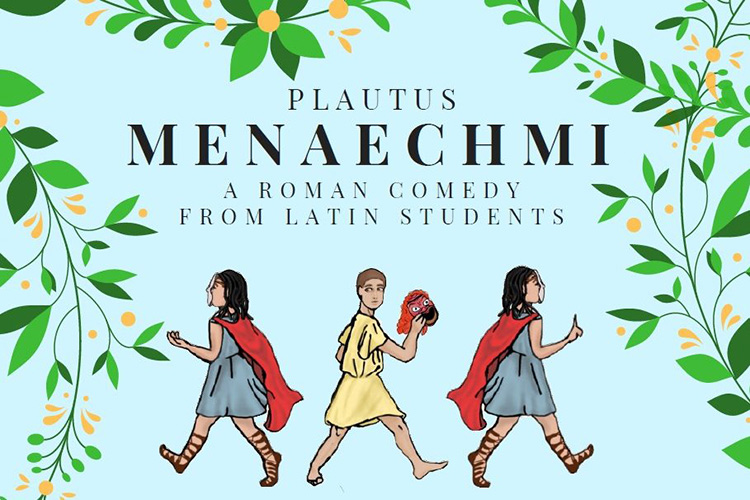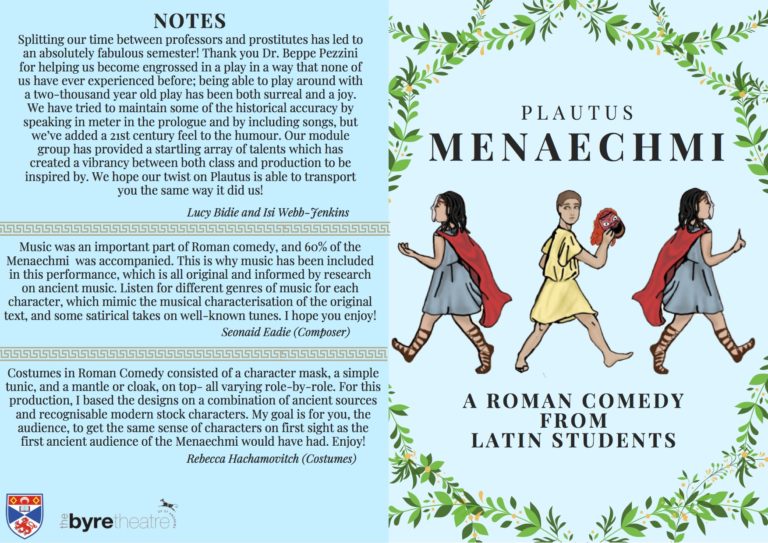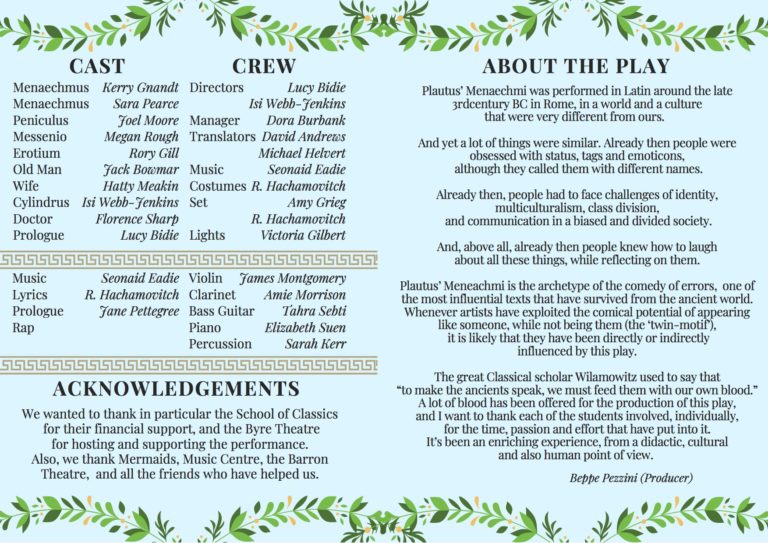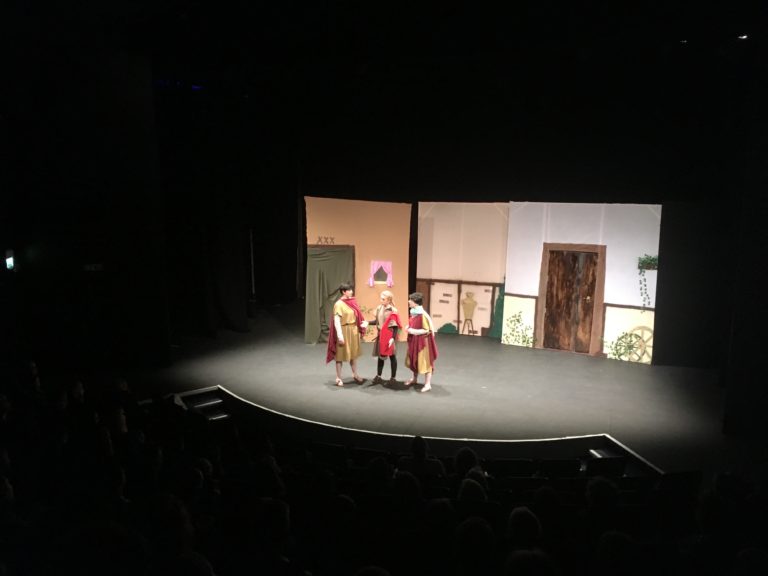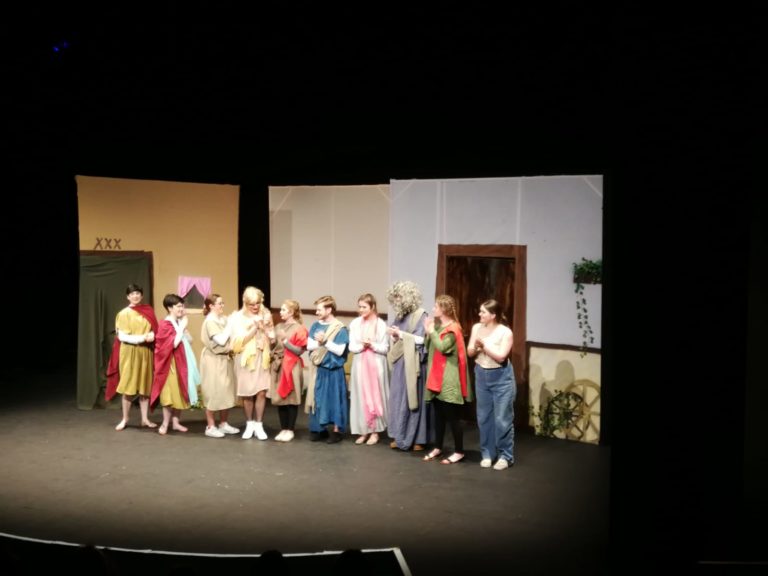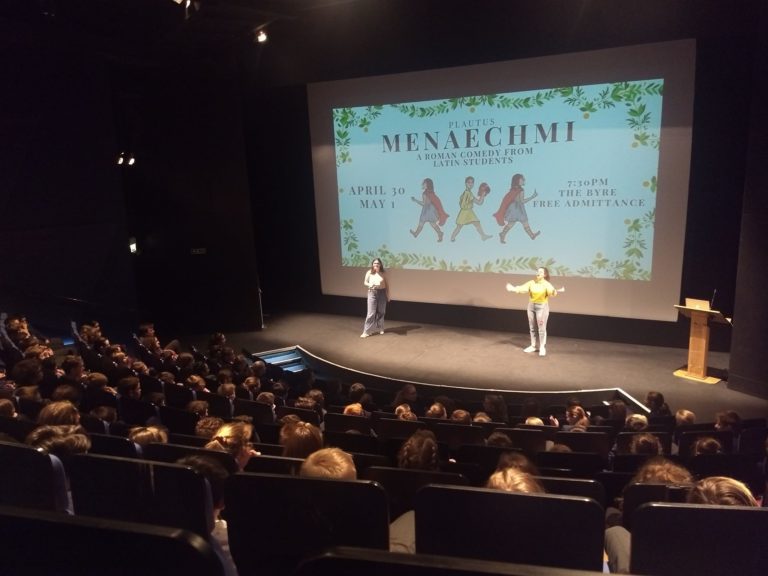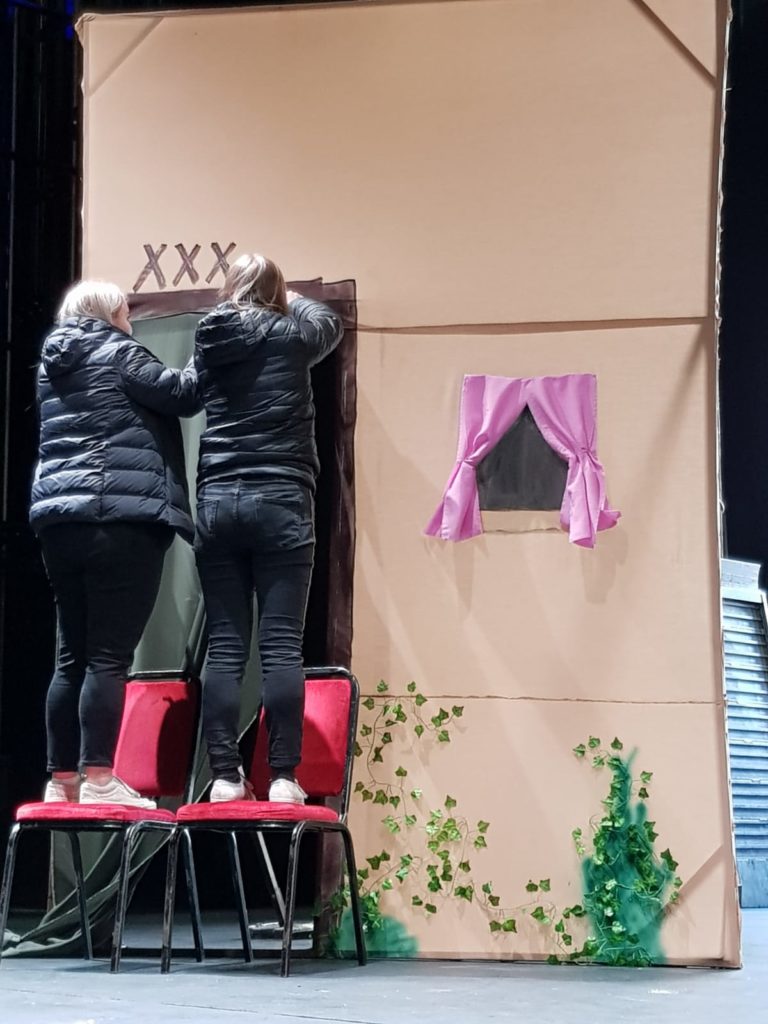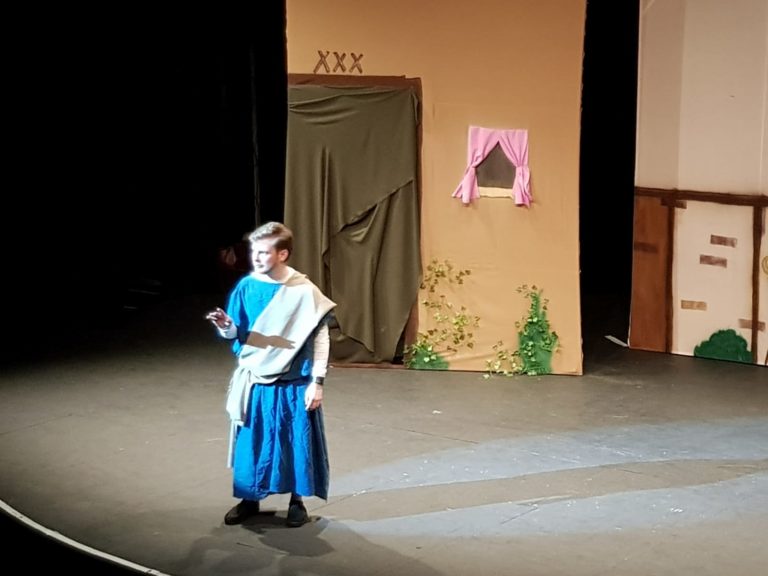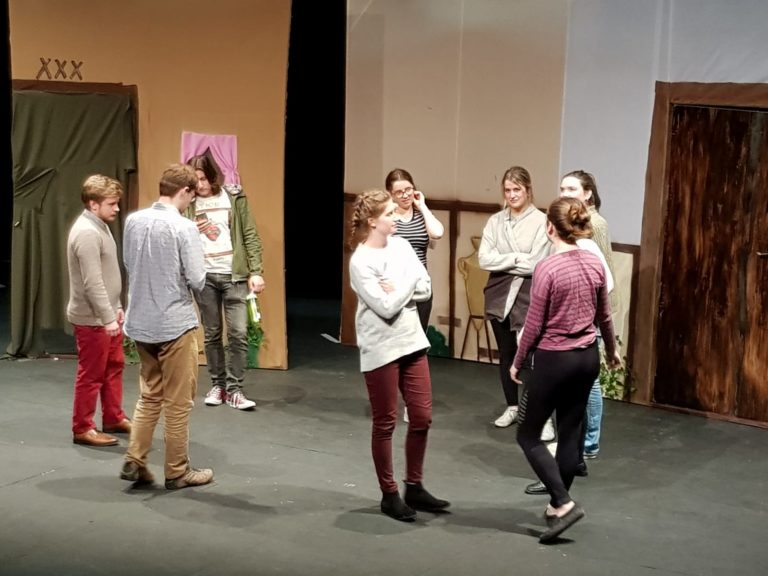Plautus Menaechmi
The comedy of the mirror
MESSENIO: What the…! What am I seeing?
SOSICLES: What are you seeing?
MESSENIO: Your mirror.
SOSICLES: What are you on about?
MESSENIO: It’s your spitting image! He’s couldn’t be more alike!
SOSICLES: True, he’s not all that dissimilar when I look at myself.
(Plautus Menaechmi 1061-1063)
This was a project led by Dr. Beppe Pezzini, and involved an original production of Plautus Menaechmi, performed by students attending his module on Roman Comedy (LT4207) in 2018/2019.
The play was performed at the Byre theatre in St Andrews on 30 April and 1 May 2019, with more than 400 people in attendance over the two days. A special performance was held for local schools.
The project addressed at all levels of the production (translation, costumes, directing, music etc.) the long-standing question about how to adapt an ancient play for a modern performance, between faithfulness to the original and the need for public accessibility.
Materials
Research paper: Article on the mirror metaphor and Roman Comedy by Beppe Pezzini (forthcoming in HSCPh).
brochure
PLAUTUS MENAECHMI
A ROMAN COMEDY FROM LATIN STUDENTS
About the play
Plautus’ Menaechmi was performed in Latin around the late third century BC in Rome, in a world and a culture that were very different from ours.
And yet a lot of things were similar. Already then people were obsessed with status, tags and emoticons, although they called them with different names.
Already then, people had to face challenges of identity, multiculturalism, class division, and communication in a biased and divided society.
And, above all, already then people knew how to laugh about all these things, while reflecting on them.
Plautus’ Menaechmi is the archetype of the comedy of errors, one of the most influential texts that have survived from the ancient world. Whenever artists have exploited the comical potential of appearing like someone, while not being them (the ‘twin-motif’), it is likely that they have been directly or indirectly influenced by this play.
The great Classical scholar Wilamowitz used to say that “to make the ancients speak, we must feed them with our own blood. ” A lot of blood has been offered for the production of this play, and I want to thank each of the students involved, individually, for the time, passion and effort that have put into it.
It’s been an enriching experience, from a didactic, cultural and also human point of view.
Beppe Pezzini (Producer)
Cast
Menaechmus: Kerry Gnandt
Menaechmus: Sara Pearce
Peniculus: Joel Moore
Messenio: Megan Rough
Erotium: Rory Gill
Old Man: Jack Bowmar
Wife: Hatty Meakin
Cylindrus: Isi Webb-Jenkins
Doctor: Florence Sharp
Prologue: Lucy Bidie
Crew
Directors: Lucy Bidie, Isi Webb-Jenkins
Manager: Dora Burbank
Translators: David Andrews, Michael Helvert
Music: Seonaid Eadie
Costumes: R. Hachamovitch
Set: Amy Grieg, R. Hachamovitch
Lights: Victoria Gilbert
Music: Seonaid Eadie
Lyrics: R. Hachamovitch
Prologue: Jane Pettegree
Rap
Violin: James Mongomery
Clarinet: Amie Morrison
Bass Guitar: Tahra Sebti
Piano: Elizabeth Suen
Percussion: Sarah Kerr
Acknowledgements
We wanted to thank in particular the School of Classics for their financial support, and the Byre Theatre for hosting and supporting the performance. Also, we thank Mermaids, Music Centre, the Barron Theatre, and all the friends who have helped us.
Notes
Splitting our time between professors and prostitutes has led to an absolutely fabulous semester! Thank you Dr Beppe Pezzini for helping us become engrossed in a play in a way that none of us have ever experienced before; being able to play around with a two-thousand year old play has been both surreal and a joy. We have tried to maintain some of the historical accuracy by speaking in meter in the prologue and by including songs, but we’ve added a 21st century feel to the humour. Our module group has provided a startling array of talents which has created a vibrancy between both class and production to be inspired by. We hope our twist on Plautus is able to transport you the same way it did us!
Lucy Bidie and Isi Webb-Jenkins
Music was an important part of Roman comedy, and 60% of the Menaechmi was accompanied. This is why music has been included in this performance, which is all original and informed by research on ancient music. Listen for different genres of music for each character, which mimic the musical characterisation of the original text, and some satirical takes on well-known tunes. I hope you enjoy!
Seonaid Eadie (Composer)
Costumes in roman comedy consisted of a character mask, a simple tunic, and a mantle or cloak, on top- all varying role-by-role. For this production, I based the designs on a combination of ancient sources, and recognisable modern stock characters. My goal is for you, the audience, to get the same sense of charcters,. on first sight as the first ancient audience of the Menaechmi wouild have had. Enjoy!
Rebecca Hachamovitch (Costumes)
Pictures
Videos
Watch more videos on the CPUGRD video channel
